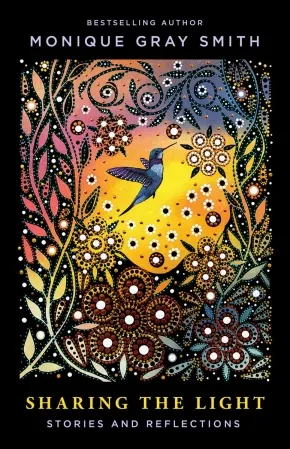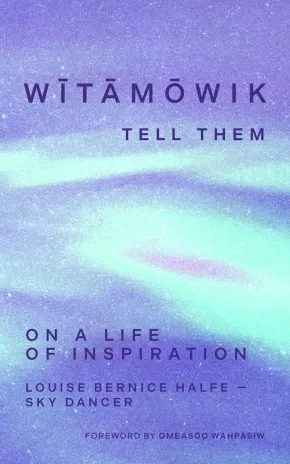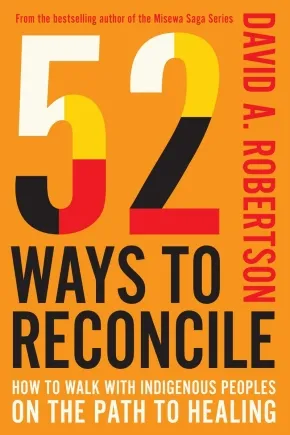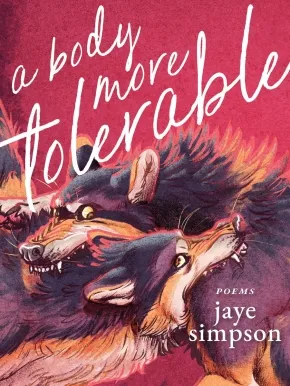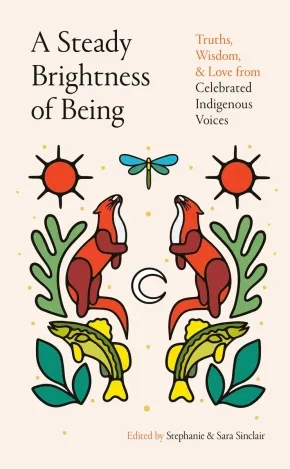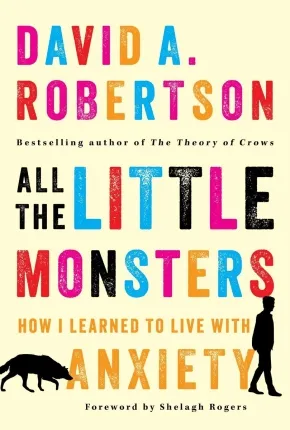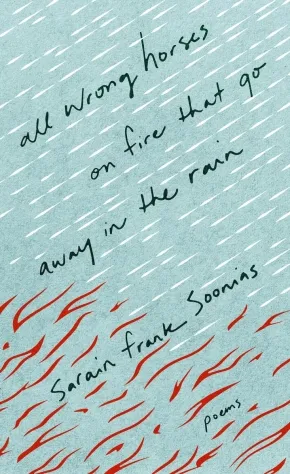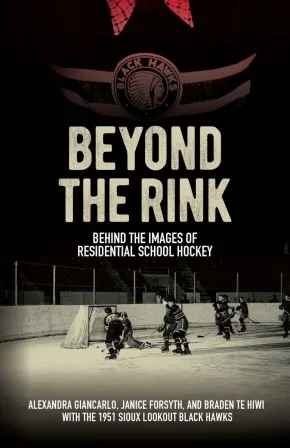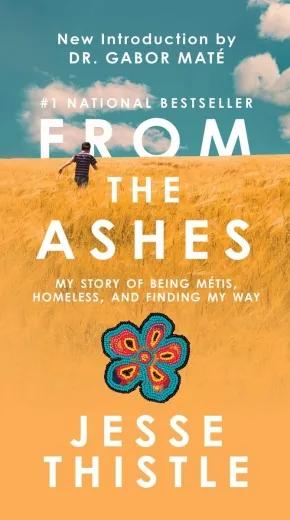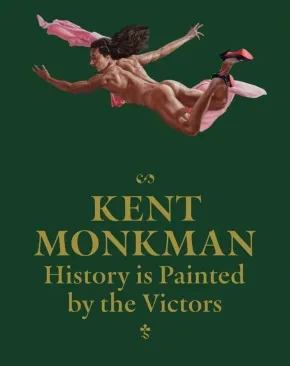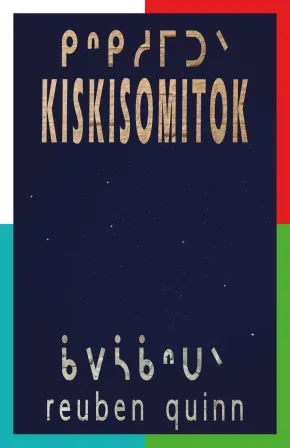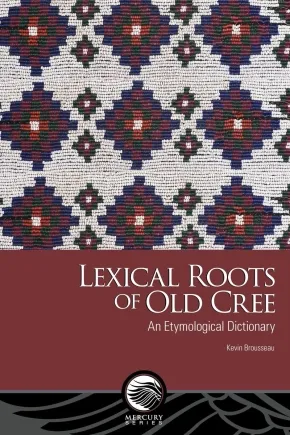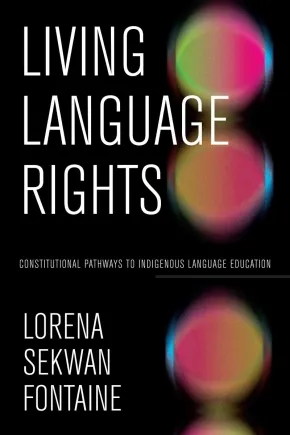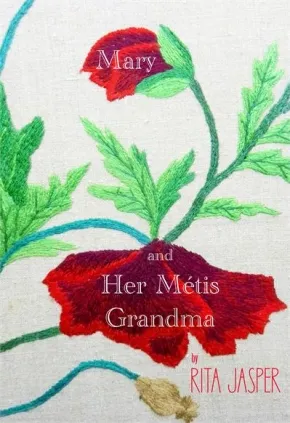
Cree (Nehiyawak)
1
-
15
of
201 Results;
Sort By
Go To
of 14
Sharing the Light: Stories and Reflections
$26.99
Format: Hardcover
Text Content Territories:
Indigenous Canadian; First Nations; Cree (Nehiyawak); Sioux; Lakota;
Reading Level: N/A
ISBN / Barcode: 9781487013547
Synopsis:
Synopsis:
Uplifting stories, vignettes, and reflections to inspire gratitude, love, joy, and hope in navigating life in a changing, challenging world.
This beautiful and welcoming book can be read cover to cover or used as a daily source of guidance, providing gentle wisdom that inspires and empowers. Through the lens of five transformative practices - gratitude, love, joy, happiness, and hope - bestselling author Monique Gray Smith weaves together short stories, poignant reflections, and thoughtful questions that invite readers to pause and reconnect with their inner light. And as an Indigenous author, Monique brings her cultural wisdom and unique perspective to each offering.
Sharing the Light is a powerful reminder that when we embrace our light and share it with the world, that energy not only transforms us but ripples out to uplift everyone around us.
Additional Information
208 pages | 5.00" x 7.75" | Hardcover
wītāmōwik / Tell Them: On a Life of Inspiration
$27.95
Format: Paperback
Text Content Territories:
Indigenous Canadian; First Nations; Cree (Nehiyawak); Plains Cree; Saddle Lake Cree Nation ;
Reading Level: N/A
ISBN / Barcode: 9781779400840
Synopsis:
Synopsis:
Cree poet and kēhtē-aya Louise Bernice Halfe – Sky Dancer’s genre-bending collection chronicles her childhood in a cabin on reserve, through the Indian Residential School system, and into her reclamation of her nēhiýaw language, culture, and spirituality.
My parents taught us the art of observation. I learned to hunt, skin, and butcher game through non-verbal methods. I also watched my grandparents work on the land and live their spirituality. I helped gather, dry, and grind their medicines. I inhaled the medicines’ power and ingested it. When I left for residential school all this fell asleep.
Poet Louise Bernice Halfe – Sky Dancer tells the story of how she woke up from the trauma of separation in these never-before-collected essays and new poems about her life and the source of her inspiration: her culture and the land. In Cree, inspiration is described as a sudden insight. It can come from visits from spirit, from the charged reciprocal experience of being taught by Elders and teaching the next generation, from speaking Cree which allows the poet to “somersault into memory,” and in the practice of observing and being in relationship with the land as it “constantly gives birth to itself.” wītāmōwik / Tell Them! is a stunning love song to nēhiýaw ways of knowing—ways which Halfe has reclaimed from the violence of colonization to celebrate their survival and share their enduring relevance with future generations.
Reviews
“Louise Halfe, with great generosity and insight, draws us into her lodge where a person can begin to receive what she calls ‘spiritual intelligence.’ One of Canada’s most remarkable poets, she takes us through the trauma of residential school and its corrosive aftermath, through racism and injustice – she is one of our leaders and we are in good hands.” -Tim Lilburn
Additional Information
288 pages | 5" x 8.03" | Paperback
52 Ways to Reconcile: How to Walk with Indigenous Peoples on the Path to Healing
$25.00
Format: Hardcover
Text Content Territories:
Indigenous Canadian;
Reading Level: N/A
ISBN / Barcode: 9780771019357
Synopsis:
Synopsis:
From bestselling author of the Misewa Saga series David A. Robertson, this is the essential guide for all Canadians to understand how small and attainable acts towards reconciliation can make an enormous difference in our collective efforts to build a reconciled country.
52 Ways to Reconcile is an accessible, friendly guide for non-Indigenous people eager to learn, or Indigenous people eager to do more in our collective effort towards reconciliation, as people, and as a country. As much as non-Indigenous people want to walk the path of reconciliation, they often aren’t quite sure what to do, and they’re afraid of making mistakes. This book is the answer and the long overdue guide.
The idea of this book is simple: 52 small acts of reconciliation to consider, one per week, for an entire year. They’re all doable, and they’re all meaningful. All 52 steps take readers in the right direction, towards a healthier relationship between Indigenous and non-Indigenous people and a time when we are past trauma. By following these steps, we can live in stronger and healthier communities equally, and respectfully, together.
Additional Information
224 pages | 5.00" x 8.00" | Hardcover
a body more tolerable
$19.95
Format: Paperback
Text Content Territories:
Indigenous Canadian; First Nations; Anishinaabeg; Oji-Cree; Ojibway; Saulteaux; Cree (Nehiyawak); Swampy Cree ; Sapotaweyak Cree Nation;
Reading Level: N/A
ISBN / Barcode: 9781551529677
Synopsis:
Synopsis:
Ferocious and vulnerable poems about redefining acts of creation, destruction, deconstruction, and recreation, from a singular Indigiqueer point of view
a body more tolerable is a collection of powerful and haunting poems combining faerie tales, mythology, and a self-divinized female rage. Divided into three parts, the book examines Indigenous grief, trans identity, and frustrated desires in ways that reject perception. Gone is the soft, kind, gentle girl that author jaye simpson once thought she would become. Instead, she unravels the sticky threads of colonialism with poems that exact lyrical acts of self-surgery.
In these visceral poems, teeth gleam, graze skin, and sink into flesh, becoming bloodied and exposing the animalistic hunger that lies within. Pulsating with yearning and possibility, a body more tolerable is a book that resists typical notions of physicality and sex to dream of a world more divine. It is a call-out into the canon for a new age, one filled with retribution and recompense.
Reviews
"jaye simpson's a body more tolerable is a singular achievement. Her poetic project, at once forward-dawning and ancestral, both revolutionary and decolonizing, is given total expression in this book. These poems moved me immensely; there is so much beauty and feeling power in all of them. No one is writing like jaye simpson." -Billy-Ray Belcourt, author of A Minor Chorus and Coexistenc
"a body more tolerable is a work at once open and lyric, fearless and tender. Expanding grief's territory into moments of relation and desire, simpson also challenges "home, as a wayward theory" into a poetics of self-mothering, of being beyond becoming. This collection is a fierce and resistant nurturing." -Liz Howard, author of Infinite Citizen of the Shaking Tent and Letters in a Bruised Cosmo
"jaye simpson is one of the most compelling and incisive voices of their generation. In a body more tolerable, they seize the English language and command it into an instrument that meticulously sings the realities of their present moment. I found solace, fire, and a relentless love for living and loving in these poetic offerings. a body more tolerable is a wayward map, and it is gorgeous. I'll carry it close to my heart." -Leanne Betasamosake Simpson, author of Noopiming: The Cure for White Ladies
"i can't retire this tongue," jaye simpson writes in a sophomore collection that creeps, howls, floats, shatters. an Indigenous speaker grapples with survival, the foster care system, the body, conceptions of motherhood, and trans girlhood in this heart-wrenching leap that returns what is most precious to us through lush language and keen lyricism. each poem is a portal of longing, ferocity, softness. i can't recommend it enough." -Kinsale Drake, National Poetry Series-winning author of The Sky Was Once a Dark Blanket
Additional Information
88 pages | 6.00" x 8.00" | Paperback
A Steady Brightness of Being: Truths, Wisdom, and Love from Celebrated Indigenous Voices
$32.00
Format: Hardcover
Text Content Territories:
Indigenous Canadian;
Reading Level: N/A
ISBN / Barcode: 9780735250369
Synopsis:
Synopsis:
Bringing together voices from across Turtle Island, a groundbreaking collection of letters from Indigenous writers, activists, and thinkers—to their ancestors, to future generations, and to themselves.
Drawing on the wisdom and personal experience of its esteemed contributors, this first-of-its-kind anthology tackles complex questions of our times to provide a rich tapestry of Indigenous life, past, present, and future. The letters explore the histories that have brought us to this moment, the challenges and crises faced by present-day communities, and the visions that will lead us to a new architecture for thinking about Indigeneity. Taking its structure from the medicine bundle—tobacco, sage, cedar, and sweetgrass—it will stir and empower readers, as well as enrich an essential and ongoing conversation about what reconciliation looks like and what it means to be Indigenous today.
Contributors: Billy-Ray Belcourt, Cindy Blackstock, Cody Caetano, Warren Cariou, Norma Dunning, Kyle Edwards, Jennifer Grenz, Jon Hickey, Jessica Johns, Wab Kinew, Terese Marie Mailhot, Kent Monkman, Simon Moya-Smith, Pamela Palmater, Tamara Podemski, Waubgeshig Rice, David A. Robertson, Niigaan Sinclair, Miss Chief Eagle Testickle, Zoe Todd, David Treuer, Richard Van Camp, katherena vermette, Jesse Wente, Joshua Whitehead.
Additional Information
192 pages | 5.50" x 8.25" | Hardcover
All the Little Monsters: How I Learned to Live with Anxiety
$25.99
Format: Paperback
Text Content Territories:
Indigenous Canadian; First Nations; Cree (Nehiyawak); Swampy Cree ; Norway House Cree Nation;
Reading Level: N/A
ISBN / Barcode: 9781443472401
Synopsis:
Synopsis:
With humour, warmth and heartbreaking honesty, award-winning author David A. Roberston explores the struggles and small victories of living with chronic anxiety and depression, and shares his hard-earned wisdom in the hope of making other people’s mental health journeys a little less lonely
From the outside, David A. Robertson looks as if he has it all together—a loving family, a successful career as an author, and a platform to promote Indigenous perspectives, cultures and concerns. But what we see on the outside rarely reveals what is happening inside. Robertson lives with “little monsters”: chronic, debilitating health anxiety and panic attacks accompanied, at times, by depression. During the worst periods, he finds getting out of bed to walk down the hall an insurmountable task. During the better times, he wrestles with the compulsion to scan his body for that sure sign of a dire health crisis.
In All the Little Monsters, Robertson reveals what it’s like to live inside his mind and his body and describes the toll his mental health challenges have taken on him and his family, and how he has learned to put one foot in front of the other as well as to get back up when he stumbles. He also writes about the tools that have helped him carry on, including community, therapy, medication and the simple question he asks himself on repeat: what if everything will be okay?
In candidly sharing his personal story and showing that he can be well even if he can’t be “cured,” Robertson hopes to help others on their own mental health journeys.
Additional Information
272 pages | 6.00" x 9.00" | Paperback
All Wrong Horses on Fire That Go Away in the Rain
$20.95
Text Content Territories:
Indigenous Canadian; First Nations; Cree (Nehiyawak); Anishinaabeg; Ojibway;
Reading Level: N/A
ISBN / Barcode: 9781774391143
Synopsis:
Synopsis:
A captivating search through one family’s history, All Wrong Horses on Fire that Go Away in the Rain is a stunning examination of intergenerational trauma and its effect on Indigenous voices. Aftershocks and fragmented memories ricochet through this collection, bringing with them strength, intensity and uninhibited beauty. Recalling pivotal work by Billy-Ray Belcourt, jaye simpson, Joshua Whitehead and Emily Riddle, Sarain Frank Soonias makes his poetic debut with a splash that ripples far outside his own work, and marks the entrance of a new, important voice in contemporary poetry.
Reviews
“Sarain Frank Soonias introduces us to himself and his craft with this strong, stunning debut. Language woven together with skillful storytelling and metaphor reminds us that our people will always create beautiful art, even in what feels like an abyss. This book is about the responsibility we have to heal ourselves while collectively working for a better world for future generations.” — Emily Riddle, award-winning author of The Big Melt
Additional Information
132 pages | 9.00" x 5.50" | Paperback
Beyond the Rink: Behind the Images of Residential School Hockey
$24.95
Format: Paperback
Text Content Territories:
Indigenous Canadian;
Reading Level: N/A
ISBN / Barcode: 9781772841060
Synopsis:
Synopsis:
Teammates, champions, Survivors
In 1951, after winning the Thunder Bay district championship, the Sioux Lookout Black Hawks hockey team from Pelican Lake Indian Residential School embarked on a whirlwind promotional tour through Ottawa and Toronto. They were accompanied by a professional photographer from the National Film Board who documented the experience. The tour was intended to demonstrate the success of the residential school system and introduce the Black Hawks to "civilizing" activities and the "benefits" of assimilating into Canadian society. For some of the boys, it was the beginning of a lifelong love of hockey; for others, it was an escape from the brutal living conditions and abuse at the residential school.
In Beyond the Rink, Alexandra Giancarlo, Janice Forsyth, and Braden Te Hiwi collaborate with three surviving team members-Kelly Bull, Chris Cromarty, and David Wesley-to share the complex legacy behind the 1951 tour photos. This book reveals the complicated role of sports in residential school histories, commemorating the team's stellar hockey record and athletic prowess while exposing important truths about "Canada's Game" and how it shaped ideas about the nation. By considering their past, these Survivors imagine a better way forward not just for themselves, their families, and their communities, but for Canada as a whole.
Reviews
"These three survivors-Kelly, David, and Chris-inspire us not only for what they have done for their communities in the aftermath of the residential school system but also for how crucial hockey and sports are in bringing Indigenous communities together, like we see in the Little NHL Tournament. Our history and the lessons we've learned are vital, and Beyond the Rink does an excellent job of highlighting this." — Ted Nolan, former NHL Player & Coach, Olympic Coach, and author of Life in Two Worlds: A Coach's Journey from the Reserve to the NHL and Back
"On its face, Beyond the Rink is a compelling story of a residential school hockey team from northern Ontario touring Ottawa and Toronto in the 1950s. But it is much more than that: with a National Film Board photographer accompanying them every step of the way, the players are props in a public relations exercise meant to obscure the true conditions in residential schools.
This is an unflinching and nuanced look behind the PR veil, a story of loss, triumph, perseverance, tragedy, and memory. It is also a detailed account of the machinery of residential schools and the trauma they inflicted. And it is a revealing look at the power of photographs, which can be used to both illuminate and mislead.
At its heart, Beyond the Rink is the story of twelve Indigenous hockey players, who, like their white counterparts, loved the game for the thrill of competition, but also as an escape from the relentless control and exploitation they faced on a daily basis, even if they were being exploited while doing it. This is the story of twelve boys, told through the lens of three of them, trapped in a world they barely understood, a world that was not the least bit interested in understanding them, and in many ways still isn't." — Gord Miller
"The authors have spent decades working with the Survivors whose stories they share and centre in this book. Beyond the Rink, Behind the Image does not simply tell the story of a hockey team; it demonstrates how sport within the context of residential schools was a tool of colonization." — Karen Froman
"It is difficult to overstate the significance of this book. The scholarship is sound as well as original in context and content, and Survivor testimony is respected and communicated in a theoretically sophisticated way." — Travis Hay
Additional Information
184 pages | 6.00" x 8.50" | 36 b&w illustrations, bibliography | Paperback
Elements of Indigenous Style: A Guide for Writing By and About Indigenous Peoples - 2nd Edition
$27.95
Editors:
Format: Paperback
Text Content Territories:
Indigenous Canadian;
Reading Level: N/A
ISBN / Barcode: 9781550599459
Synopsis:
Synopsis:
The groundbreaking Indigenous style guide every writer needs.
The first published guide to common questions and issues of Indigenous style and process for those who work in words and other media is back in an updated new edition. This trusted resource offers crucial guidance to anyone who works in words or other media on how to work accurately, collaboratively, and ethically on projects involving Indigenous Peoples.
Editor Warren Cariou (Métis) and contributing editors Jordan Abel (Nisga’a), Lorena Fontaine (Cree-Anishinaabe), and Deanna Reder (Cree-Métis) continue the conversation started by the late Gregory Younging in his foundational first edition. This second conversation reflects changes in the publishing industry, Indigenous-led best practices, and society at large, including new chapters on author-editor relationships, identity and community affiliation, Two-Spirit and Indigiqueer identities, sensitivity reading, emerging issues in the digital world, and more.
This guide features:
- Twenty-two succinct style principles.
- Advice on culturally appropriate publishing practices, including how to collaborate with Indigenous Peoples, when and how to seek the advice of Elders, and how to respect Indigenous Oral Traditions and Traditional Knowledge.
- Terminology to use and to avoid.
- Advice on specific editing issues, such as biased language, capitalization, citation, accurately representing Indigenous languages, and quoting from historical sources and archives.
- Examples of projects that illustrate best practices.
Additional Information
208 pages | 5.50" x 7.50" | Paperback
From the Ashes: My Story of Being Métis, Homeless, and Finding My Way (PB)
$13.99
Format: Paperback
Text Content Territories:
Indigenous Canadian; First Nations; Cree (Nehiyawak); Métis;
Reading Level: N/A
ISBN / Barcode: 9781668213728
Synopsis:
Synopsis:
In this extraordinary and inspiring debut memoir, Jesse Thistle, once a high school dropout and now a rising Indigenous scholar, chronicles his life on the streets and how he overcame trauma and addiction to discover the truth about who he is.
If I can just make it to the next minute... then I might have a chance to live; I might have a chance to be something more than just a struggling crackhead.
From the Ashes is a remarkable memoir about hope and resilience, and a revelatory look into the life of a Métis-Cree man who refused to give up.
Abandoned by his parents as a toddler, Jesse Thistle briefly found himself in the foster-care system with his two brothers, cut off from all they had known. Eventually the children landed in the home of their paternal grandparents, but their tough-love attitudes meant conflicts became commonplace. And the ghost of Jesse’s drug-addicted father haunted the halls of the house and the memories of every family member. Struggling, Jesse succumbed to a self-destructive cycle of drug and alcohol addiction and petty crime, spending more than a decade on and off the streets, often homeless. One day, he finally realized he would die unless he turned his life around.
In this heartwarming and heartbreaking memoir, Jesse Thistle writes honestly and fearlessly about his painful experiences with abuse, uncovering the truth about his parents, and how he found his way back into the circle of his Indigenous culture and family through education.
An eloquent exploration of what it means to live in a world surrounded by prejudice and racism and to be cast adrift, From the Ashes is, in the end, about how love and support can help one find happiness despite the odds.
Awards
- 2020 Indigenous Voices Awards Winner for Published Prose in English
- Winner, Kobo Emerging Writer Prize Nonfiction
- Winner, High Plains Book Awards
- An Indigo Book of the Year
Reviews
“From the Ashes hits you like a punch in the gut. It’s an unflinching, heartrending and beautifully written story of survival against seemingly impossible odds. But it’s also a book that should make you furious. Thistle paints a vivid portrait of a country seemingly incapable of doing right by Indigenous youth or by those struggling with homelessness, addiction and intergenerational trauma. That he survived to tell this story is truly a miracle. Still, one question haunts me after finishing this powerful and devastating book: How do we ensure that the next generation isn’t forced to navigate a broken system that takes their lives for granted and fails them at every turn? My greatest hope, then, is that From the Ashes will be the wakeup call Canada needs.” — IAN MOSBY, historian and author of Food Will Win the War
Educator Information
Caution: Deals with mature subject matter.
Additional Information
368 pages | 6.00" x 9.00"
Kent Monkman: History is Painted by the Victors
$74.95
Artists:
Editors:
Format: Hardcover
Text Content Territories:
Indigenous Canadian; First Nations; Cree (Nehiyawak); Fisher River Cree (Ochekwi-Sipi);
Reading Level: N/A
ISBN / Barcode: 9781636811543
Synopsis:
Synopsis:
The renowned Cree artist unmasks a whitewashed, Eurocentric history through provocative paintings full of sexuality and drama
One of Canada’s most renowned artists, interdisciplinary Cree artist Kent Monkman challenges the art historical narrative of settler cultures that colonized First Peoples from North America. He incorporates influences from the canon of European and Euro-American painting, reframing historical, contemporary and speculative future Indigenous experiences. Taking inspiration from Western artists such as George Catlin, as well as from the Old Masters, Monkman’s monumental history paintings feature white colonizers in violent conflict with Indigenous people. The depictions range from early colonial encounters to modern and contemporary clashes between Indigenous communities and uniformed police or clergy. In borrowing the visual language of his oppressors, Monkman reclaims the narrative written by Western art history about the brutalization and cultural genocide carried out against Indigenous North American communities.
History is Painted by the Victors accompanies the artist’s first major exhibition in the United States. The catalog gathers rich analysis of Monkman’s art from prominent scholars, expanding our understanding of his oeuvre and offering new insight via queer theory, historical and contemporary contexts, visual analysis and lived experience.
Kent Monkman was born in 1965 in Ontario, Canada and is a member of Fisher River Cree First Nation in Treaty 5 Territory. Monkman’s works have been exhibited at the Metropolitan Museum of Art, Montreal Museum of Fine Arts, Hayward Gallery, Philbrook Museum of Art, Palais de Tokyo and many more. He is the author of two bestselling novels, The Memoirs of Miss Chief Eagle Testickle, Volumes 1 and 2, which are based on his gender-fluid alter ego who often appears in Monkman’s work as a time-traveling, shape-shifting, supernatural being who reverses the colonial gaze to challenge received notions of history and Indigenous peoples. He lives and works in New York City and Toronto.
This book was published in conjunction with Denver Art Museum; Montreal Museum of Fine Arts.
Additional Information
176 pages | 9.50" x 12.00" | 86 Illustrations | Hardcover
kiskisomitok ᑭᐢᑭᓱᒥᑐᐠ
$19.95
Format: Paperback
Reading Level: N/A
ISBN / Barcode: 9781772016444
Synopsis:
Synopsis:
In ᑭᐢᑭᓱᒥᑐᐠ kiskisomitok: ᓀᐦᐃᔭᐤ to remind each and one other, nêhîyaw educator ᑳᐯᓵᑳᐢᑌᐠ reuben quinn uses the spirit marker writing system as a foundation for teaching ᓀᐦᐃᔭᐁᐧᐃᐧᐣ nêhîyawewin. The spirit marker writing system holds forty-four spirit markers and fourteen minor spirit markers. Some people call that system the star chart. Each spirit marker holds a law. These laws are meant to guide us in ways that support us in life. They are meant to guide us in ways of living well with the elements: fire, land, water, and air. The spirit markers remind us that these elements form the foundations of all relationships on earth.
Educator Information
In ᑭᐢᑭᓱᒥᑐᐠ kiskisomitok: ᓀᐦᐃᔭᐤ, reuben quinn uses the spirit marker writing system as a foundation for teaching ᓀᐦᐃᔭᐁᐧᐃᐧᐣ nêhîyawewin.
Additional Information
96 pages | 5.51" x 8.50" | Paperback
Lexical Roots of Old Cree: An Etymological Dictionary
$59.95
Format: Paperback
Text Content Territories:
Indigenous Canadian; First Nations; Cree (Nehiyawak);
ISBN / Barcode: 9780776645490
Synopsis:
Synopsis:
Lexical Roots of Old Cree: An Etymological Dictionary is the result of over two decades of research on historical and contemporary Cree dialects. Built from extensive linguistic fieldwork with nearly a hundred fluent speakers and supported by lexical databases and textual corpora, it offers a detailed reconstruction of Old Cree roots and their evolution across dialects such as Moose Cree, Southern East Cree, Atikamekw, and Western Innu.
Lexical roots—the smallest meaningful units of words—are central to Cree’s polysynthetic structure, where words can function as entire sentences. By meticulously tracing these roots, this dictionary provides critical insights into how words were formed in Old Cree and how they continue to be structured in modern dialects.
Beyond linguistic reconstruction, this work addresses practical challenges in Cree lexicography, particularly those arising from orthographic variations and dialectal differences. It serves as a valuable resource for lexicographers, linguists, and community members engaged in language preservation and revitalization.
The research draws from historical manuscripts, early dictionaries, and oral traditions, ensuring a comprehensive and evidence-based approach to linguistic analysis. At a time of rapid linguistic erosion, this dictionary not only documents Cree’s rich lexical heritage but also supports ongoing efforts to sustain and strengthen the language for future generations. It stands as a testament to the knowledge generously shared by fluent speakers and to the enduring vitality of Cree linguistic traditions.
Additional Information
520 pages | 6" x 9" | Paperback
Living Language Rights: Constitutional Pathways to Indigenous Language Education
$27.95
Format: Paperback
Text Content Territories:
Indigenous Canadian;
Reading Level: N/A
ISBN / Barcode: 9781772841145
Synopsis:
Synopsis:
Beyond Bilingualism
In Living Language Rights: Constitutional Pathways to Indigenous Language Education, Lorena Fontaine's ground-breaking work explores the constitutional foundations and growing recognition of Indigenous language rights in Canada. By documenting the history of First Nations' language transmission on the prairies, Fontaine demonstrates how Indigenous language rights are deeply embedded in both First Nations law and Canadian constitutional law. Equal parts personal and scholarly, Living Language Rights highlights the sacred responsibility within First Nations law to preserve and transmit language. Fontaine argues that language transmission is not only culturally significant, but also a constitutionally protected right that Canada has a duty to uphold-especially following decades of attempted linguistic genocide.
Focusing on education as the path to Indigenous language revitalization, she examines the current health of Indigenous languages and urges governments to act. Living Language Rights is a crucial read, filling an important void for anyone seeking to understand Indigenous rights, language revitalization, and Canadian constitutional law.
Reviews
"Fontaine’s interweaving of history and perspectives with the law make this a significant contribution to the field of language loss and revitalization. Living Language Rights is a “must read” for educators interested in Indigenous languages and their revitalization." - Marie Battiste, University of Saskatchewan
Educator Information
Table of Contents
List of Figures
Acknowledgements
Preface
Introduction: Foundations: First Nations Language Transmission
Chapter 1: Intercustomary Law: First Nations Language Transmission in the Prairies
Chapter 2: Linguistic Genocide: Canada's Educational System
Chapter 3: Canada's Constitution: First Nations Language Rights in Education
Chapter 4: International Law: Indigenous Peoples Language Rights in Education
Chapter 5: Indigenous Languages Act: Section 35 of Canada's Constitution Act, 1982
Conclusion
Appendix
Notes
Bibliography
Additional Information
264 pages | 6" x 9" | Paperback
Mary and her Métis Grandma
$24.95
Format: Paperback
Text Content Territories:
Indigenous Canadian; Métis;
Reading Level: N/A
ISBN / Barcode: 9781998779895
Synopsis:
Synopsis:
A gripping work of auto-fiction / biography and memoir resulting in historical accountability. Divided into two parts; starting at the turn of the 20th century leading into the 1980's.
Filled with wisdom, grit and honesty, this is the journey of a Métis teenager overcoming personal grief, witnessing the pain of others, and experiencing the healing power of a Grandma’s love.
At times harrowing and instead of succumbing to self-pity Mary will rise above her presumed narrative with courage and love as her Grandma takes Mary under her wing to guide her into the mature woman she will become.
Educator Information
To learn more about this work, visit the author's website: https://ritajasperart.com/category/mary-and-her-metis-grandma/
Additional Information
250 pages | 5.50" x 8.50" | Paperback
Sort By
Go To
of 14

